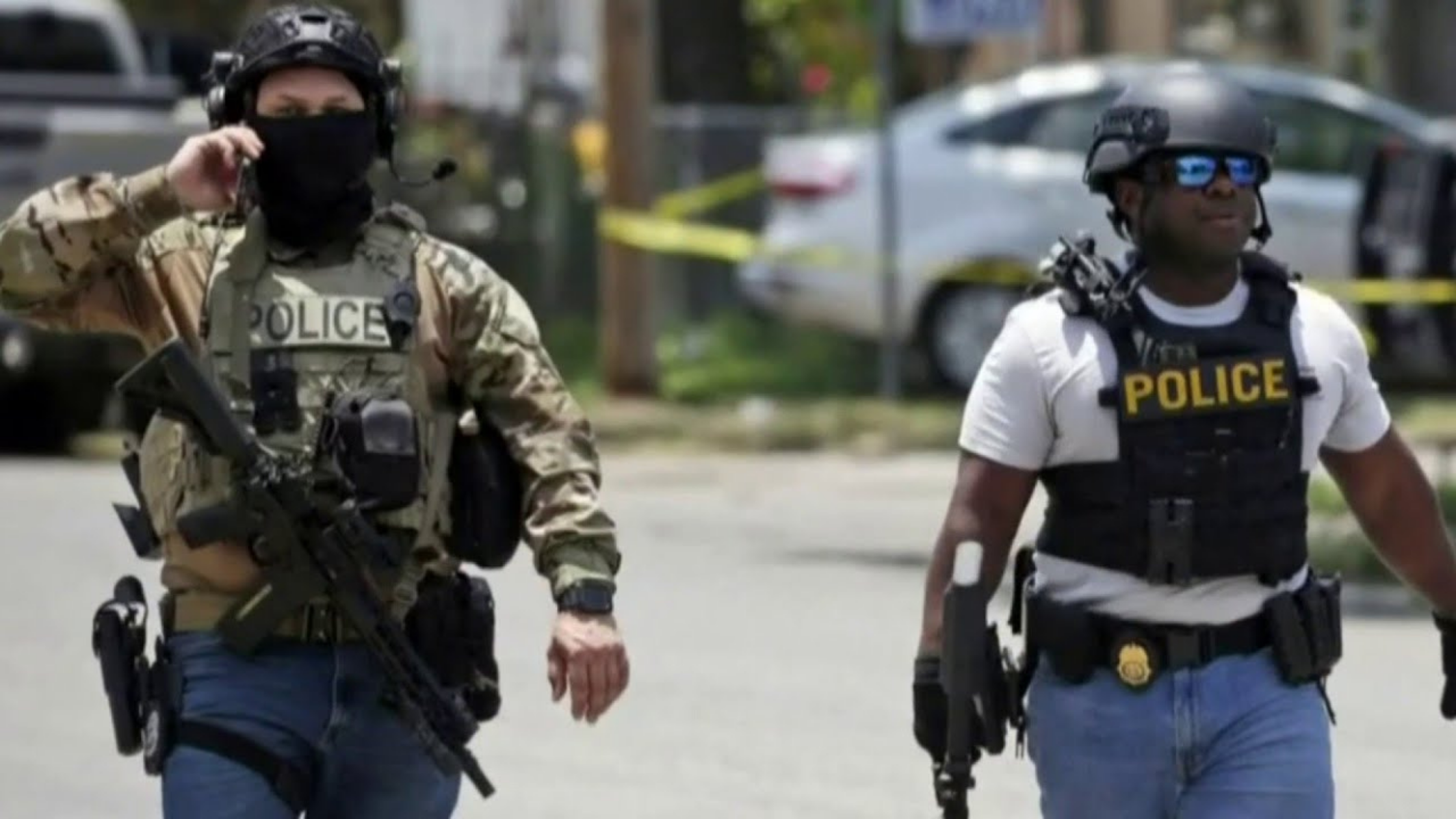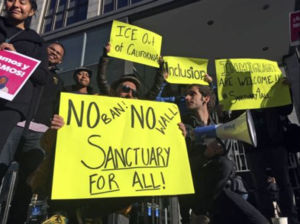California’s ICE Masks California Secret Police Bill, officially known as Senate Bill 627 or the “No Secret Police Act,” has ignited a statewide conversation—and national headlines—by aiming to ban masks for law enforcement officers outside of emergencies. Introduced by Sens. Scott Wiener (D‑San Francisco) and Jesse Arreguín (D‑Berkeley), the measure would make it a misdemeanor for any state, local, or federal officer to obscure their face or conceal identifying information during routine operations . The bill responds directly to high-profile incidents where ICE agents—decked out in unmarked gear and hidden faces—carried out immigration raids in cities such as Los Angeles, San Francisco, and San Diego, prompting widespread fear among residents.
1. Origins & Motivation: A Response to Masked ICE Actions
Federal ICE operations in California this June involved agents wearing masks, balaclavas, and unmarked vehicles during immigration enforcement activities. These tactics, while defended as safety measures, raised alarms among advocates and residents. Sen. Wiener said such practices create an atmosphere of “profound terror,” likening masked agents to a “secret police force” and asserting that masking undermines public trust.
This legislative push places California at the heart of tension between state authority and federal enforcement. A key challenge is jurisdiction: experts argue that states can’t regulate federal officers’ attire or operations . As Laurie Levenson (Loyola Law) put it, “the state can’t tell the feds what to do,” a stance echoed by Stanford’s Robert Weisberg . Still, proponents believe they can restrict hosting or facilitating conditions for federal actions ruled unconstitutional by local courts.
2. Main Provisions & Exemptions in SB 627
SB 627 would:
- Ban face coverings by law enforcement officers (including federal), unless worn for medical reasons, wildfire smoke, or SWAT operations.
- Require visible name tags or badge numbers on all uniforms during official duties.
- Designate masked interaction as a misdemeanor, potentially punishable by jail time and fines.
Exemptions include:
- Naturally hazardous incidents (e.g., wildfires, search-and-rescue).
- SWAT/riot teams are using full protective gear.
- National Guard and other disaster-response personnel.
This balance aims to bolster transparency and accountability without undermining critical safety protocols.
3. Support: Transparency, Trust, and Civil Rights
Public trust and government accountability form the backbone of SB 627’s support. Advocates argue that identifiable officers protect civil liberties, especially in immigration enforcement contexts. A guest op‑ed in L.A. Times warned: “masked agents… may contradict Homeland Security regulations… and potentially provide cover for constitutional and civil rights violations”.
The Independent noted alarming incidents where impersonators—wearing masks and flashing fake ICE credentials—attempted to detain individuals during heightened ICE activity. That supervisor Kathryn Barger, said these impersonators took advantage of “this population,” underscoring the dangers of masked ambiguity.
Nationally, political leaders have condemned masked federal agents. House Minority Leader Hakeem Jeffries condemned the anonymity, and Bill Kristol labeled the excuse for masks as “ridiculous” and “pathetic” .
4. Opposition: Officer Safety & Federal Pushback
Opposition—especially from law enforcement associations—focuses on officer safety and preserving operational effectiveness. PORAC (Peace Officers Research Association of California) warned SB 627 “forces our officers to choose between personal protection and a misdemeanor,” compromising their security.
Veterans in Police1 editorial described risks like doxxing, real-world threats, and online swatting targeting officers and families . They argue that masks can be essential during undercover raids or high-risk assignments.
ICE has argued masks protect agents against death threats and harassment. Acting Director Todd Lyons stated: “I’m not going to let my officers… put their lives… on the line… because people don’t like what immigration enforcement is” .
Legal experts acknowledge California’s transparency goals but warn the state may lack authority over federal personnel.
5. Legal & Political Showdown Ahead
Legal analysts believe SB 627 faces steep hurdles when applied to federal officers. Courts typically maintain federal primacy in regulating federal personnel. However, California could contest federal actions via refusal to assist local enforcement, drawing on sanctuary state precedents. [ sfchronicle.com]
Politically, SB 627 aligns with growing friction between Democratic-controlled states and Trump-era federal directives on immigration. California’s move is part of a wider resistance that includes lawsuits challenging federal guard deployments and constitutional pushback against enforcement tactics .
If passed, SB 627 would take effect in January 2026, pending committee approval and legislative votes this summer .
Conclusion: Transparency vs. Security – Where’s the Balance?
SB 627 shines a spotlight on a national dilemma: how to ensure law enforcement accountability without endangering those fulfilling tough—and sometimes dangerous—public safety roles. On one hand, removing masks and requiring visible IDs can foster trust and safeguard civil rights. On the other hand, enforcing these rules without compromising officer and agent safety poses real challenges.
California’s “No Secret Police Act” isn’t just about removing masks—it’s a deliberate statement about democracy, oversight, and community trust. Regardless of its legal outcome, the bill has advanced a vital conversation about the nature of public security in a polarized era.
Subscribe to trusted news sites like USnewsSphere.com for continuous updates.





